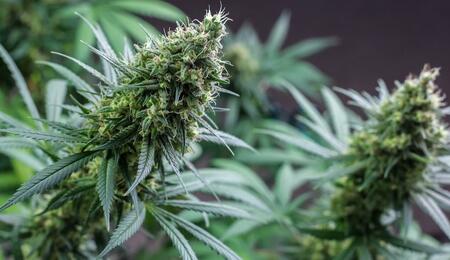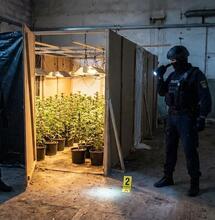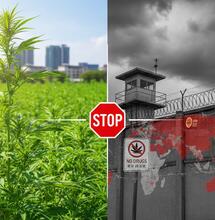South Africa - A Country with Cannabis ‘Master Plan’

South Africa legalized the use of cannabis for private use in 2024, joining the company of only few other countries around the world, among which Uruguay, Canada, Malta, Luxembourg, Germany, and Czechia, that permit recreational use of cannabis. The reform of South Africa’s cannabis sector is expected to complete by 2027.
To date, South Africa’s Department of Agriculture has issued over 1,400 permits for the production of medical cannabis, while the South African Health Authority has issued 120 licenses for the export of medical cannabis products. The next challenge for South Africa’s emerging cannabis sector is regulating sales for everyone of legal age, which is above 18 as per national law.
Earlier this year, South Africa’s health minister tried to outlaw edibles, citing children’s safety concerns. After his decision created havoc, the ban was reversed. New and well-formulated laws will, in addition, offer better guidance for cannabis regulators and lawmakers.
On the Road to Commercializing Cannabis in South Africa
The Department of Trade, Industry, and Competition (DTIC) is tasked with modernizing national industry regulations to remove unnecessary burdens on the cannabis sector. The DTIC recently highlighted its role in implementing South Africa’s National Cannabis Master Plan.
“South Africa is establishing itself as an emerging leader in the global hemp and cannabis industry by utilizing its natural strengths and the increasing momentum of the private sector. The country is transitioning towards a fully regulated, economically driven cannabis and hemp industry, focusing on harmonizing laws, boosting local cultivation, and creating export opportunities – all while emphasizing public health and safety,” the DTIC wrote in its public statement.
The statement highlights that recent legislation, such as the ‘Cannabis for Private Use Act’ signed in 2024, laid the foundation for legal cultivation and private use. However, commercial trade still faces regulatory hurdles, which are being addressed through consulting both national and provincial authorities, and relevant stakeholders. The DTIC admits that modernization of the cannabis industry is taking longer than expected, “but hopefully the wait will be worth it.”
The so-called ‘Hemp and Cannabis Commercialization Policy’ is supposed to be ready for Cabinet approval and public comment by April 2026, according to the DTIC. A separate bill, named ‘Overarching Cannabis Bill’ is also in the works, with a purpose “to unify existing regulations.” It is this bill that is expected to cover private use and commercial production altogether, and it’s due to be presented to Parliament at some point in 2027.
Progress on cannabis reform in South Africa follows after the Department of Agriculture declared Cannabis sativa L. with low THC (hemp) as an agricultural good under the ‘Plant Improvement Act’. This marked the first major shift toward regulating cannabis in South Africa, and from there lawmakers started working on other laws.
Favorable Weather for Jobs Growth, and the Challenges
DTIC as a body responsible to develop the cannabis sector also offers grants of up to R20 million to stimulate investment in agricultural production, job creation and transformation, its statement said.
“The hemp and cannabis industry employs over 90,000 people in South Africa. Favorable climate conditions, rising demand for medicinal products, and initiatives like the National Cannabis Master Plan contribute to the sector’s growth. Medicinal cannabis was legalized in 2017, with private use decriminalized in 2018, and the Cannabis for Private Purposes Act enacted into law by President Ramaphosa on 28 May 2024,” the DTIC concluded.
While 90,000 employees in cannabis is a formidable number, the sector has its fair share of problems. Mirishin Schutte-Schoeman, CEO of Abis Inc. and Spoonful of Sugar dispensaries believes that more efforts should be directed at dismantling misconceptions around the medicinal use of cannabis.
“Institutions like the University of the Western Cape and North-West University are beginning to explore this field. But to scale research meaningfully, collaboration with private companies and international partners is still essential,” Schutte-Schoeman told the Farmer’s Weekly.
She says that through partnerships and product innovation, South Africa can position itself higher on the African medicinal cannabis market.
“Techniques like using nano-emulsions, targeted delivery methods such as suppositories, and even combining cannabis with indigenous African plants, offer untapped opportunities for product development that’s both effective and unique to our region,” she said.
More cannabis news from Soft Secrets:












